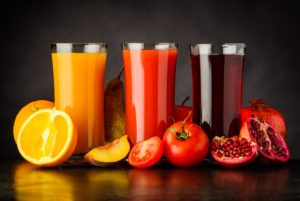 If you’re like most people, you’re likely to assume that natural fruit juice is healthful. It comes from fruit, and it’s rich in vitamins and minerals that fit into a healthy diet. The box says so, the posters at your neighborhood juicery say so, and fruits are good for you.
If you’re like most people, you’re likely to assume that natural fruit juice is healthful. It comes from fruit, and it’s rich in vitamins and minerals that fit into a healthy diet. The box says so, the posters at your neighborhood juicery say so, and fruits are good for you.
But
How can this be? It could have something to do with the lack of fiber. When fruit is consumed as a whole, its sugar doesn’t lead to insulin spikes. Fiber serves as a buffer, allowing blood sugar levels to remain moderate. Rapid blood sugar and insulin spikes are what can eventually lead to type-2 diabetes. The lack of fiber in fruit juice allows the natural sugars to behave just like the ones you’re regularly told to avoid.
A recently published study showed diabetes risk was the same for people drinking both naturally sweetened drinks and soft drinks made with added sugar. Researchers from Harvard University in Boston and Fudan University in China analyzed data from three major studies to draw their conclusion. Looking at the results from more than 192,280 people spanning a 22–16 year follow up period, they found that people who increased total intake of soft drinks with added sugars and naturally sweetened fruit drinks by over 4 ounces per day over four years saw diabetes risk go up 16 percent over the next four years.
Advertisement
The results are published in Diabetes Care.
Type-2 diabetes promotes inflammation in the body, which is closely associated with heart disease, high blood pressure, and dementia risk.
The good news is that replacing one sugary beverage per day with an unsweetened option like coffee, water, or tea was associated with 2-10% lower risk for type-2 diabetes.
So, if you’re drinking fruit juice and believe it’s doing your body good, you might be better off eating the whole fruit with a glass of water and cup of tea.
